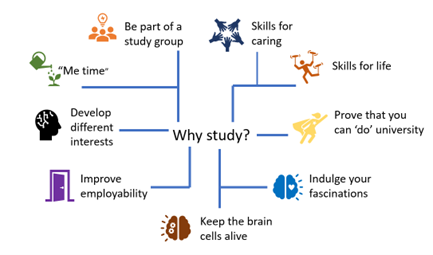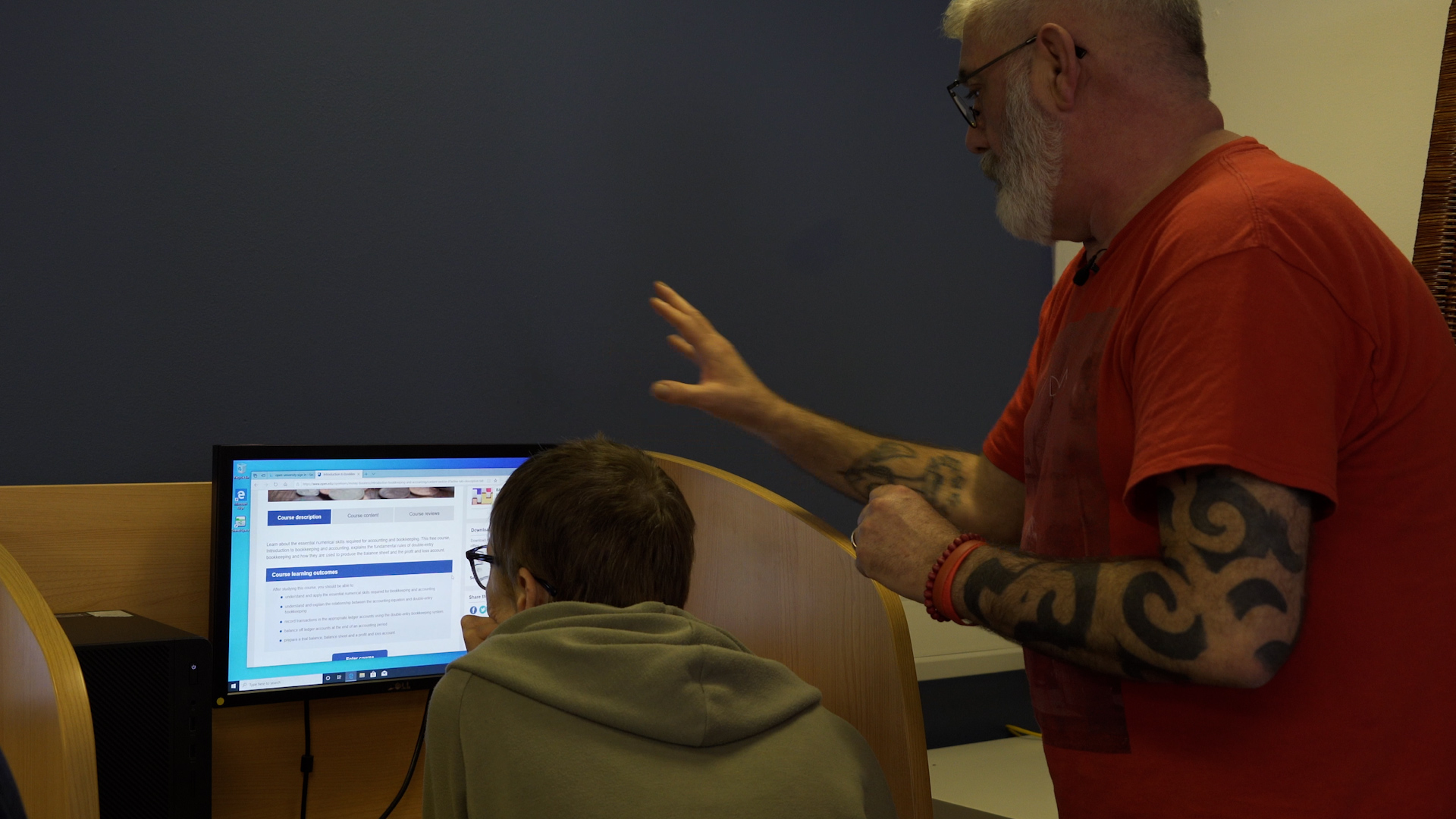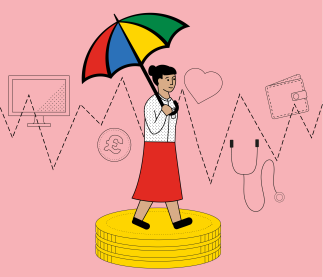Why carers?
An increasing aging population, improvements in the lifespan of children and adults with lifelong disabilities; a reduction in expenditure on public services are just some of the reasons why the number of family carers is growing and why it will continue to do so. In 2021, it was estimated that there were 10.5 million carers in the UK and at least 647 million carers worldwide, indeed it is now estimated that at least 60% of UK adults will become a family carer at some point in their lives (Milne & Larkin, 2023). It can take up to two years for an individual to identify as a carer, who can be defined as:
A carer is anyone, including children and adults who looks after a family member, partner or friend who needs help because of their illness, frailty, disability, a mental health problem or an addiction and cannot cope without their support. The care they give is unpaid.
(Medical Directorate and Nursing Directorate, 2014)
Although there are positive outcomes from caring, there is much evidence of negative outcomes from caring on physical and mental health, finances, relationships, and social life. Caring also impacts on education and employment.
Why is learning important for carers?
Carers often see accessing learning opportunities as daunting or as a non-starter. However, research from The Open University (OU) has shown that despite the challenges they face, carers say studying improves their wellbeing, gives them opportunities to improve their lives in ways that would otherwise be closed to them and enables them to have a life alongside their caring role. Other benefits of study are outlined in the Figure 1 as identified in OU research (Kubiak et al., 2021).
 Figure 1: Benefits of OU study for carers
Figure 1: Benefits of OU study for carers
These benefits are also linked to improved wellbeing. The New Economics Foundation’s Five Ways to Wellbeing (Aked & Thompson, 2011) in Figure 2 is a well evidenced model of key actions which do us good. It highlights how OU study improves wellbeing because it potentially enables people to ‘Keep Learning’ and build 'Connections’ with others.
 Figure 2: Five Ways to Wellbeing
Figure 2: Five Ways to Wellbeing
Given that OU
study can benefit carers and improve their wellbeing, the OU and Carers Centre
Tower Hamlets have co-developed a learning programme for carers and those who
support them – ‘Learning for carers at the Open University’
Through this learning programme, carers have the opportunity to learn – to pursue a hobby, for personal development or improve employment opportunities. Carers can study alone or with peers and belong to a learning community, thereby reducing isolation and creating vital networks for their wellbeing.
The cost and time required (e.g., in terms of the requirement to attend organised study sessions, and time away from the person for whom they care) can be barriers to learning for carers. The use of the free and flexible educational resources available from The Open University’s award winning OpenLearn reduces these barriers.
Introducing the Learning for Carers at the OU programme
The video below introduces you to Tony Collins-Moore, Wellbeing Manager at Carer Centre Tower Hamlets as he leads you through an overview of the programme.
You can read more about why Tony became involved in the programme in the first article below, and in the second article hear how the OU supports carers:
To get started
on the programme, please access the suite of project resources here which
include the ‘Learning Guide for Carers' mentioned in the video, and support
materials for carer centre staff/support workers.
- Learning Guide for Carers (PDF, 2.4 MB)
- Facilitator / OpenLearn Champions Guide (PDF, 1.2 MB)
Once you have read through the accompanying materials, you are ready to dive in to OpenLearn. You might know where you would like to start in terms of topic areas but if you haven’t, we list a few below that might be of interest:
Courses and resources related to your caring role:
Courses related to supporting your learning journey:
Courses and resources related to your wellbeing:


















Rate and Review
Rate this article
Review this article
Log into OpenLearn to leave reviews and join in the conversation.
Article reviews